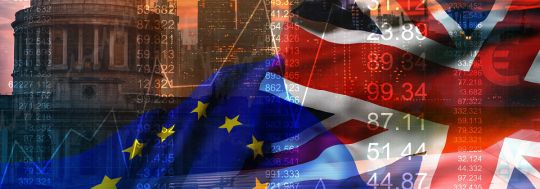Brexit: What it could mean for Australian investors

Brexit Day is coming. March 29 is the day Britain is due to part ways with the powerful European Union. Britain’s exit is likely to result in significant ramifications for the UK economy and share market, but what will it mean for Australian investors?
We have reached out to the experts for their views on how this historic event may impact Aussie investors.
First, a bit of background
If you’ve been following the soap opera that is Brexit, then you will know that it’s a tad bit messy, extremely polarizing and difficult to summarise in just one article.
In a historic referendum on June 23, 2016, the British public voted to leave the economic and political powerhouse that is the European Union (EU). Now almost three years on, Brexit has dominated the news, and likely many dinner conversations, as the country prepares to take its leave (or not, there is also an on-going campaign for a second referendum, which has not yet been ruled out).
The British parliament overwhelming voted down UK Prime Minister Theresa May’s latest Brexit deal with the European Union voted down in January. It appears that more than ever, there is a great deal of uncertainty about how Brexit will transpire.
Confused by Brexit?
Our animated explainers are here to bring you up to date. https://t.co/eFt4L1u6iD
— Channel 4 News (@Channel4News) December 3, 2018
Will Brexit affect the Australian economy?
There are a number of ways Brexit could unfold. A soft Brexit typically refers to Britain remaining closely aligned with the EU and leaving with a deal in place, which could see Britain staying in the European single market or customs union (a type of trade bloc where a group of states strike a free trade agreement).
The second is a hard Brexit, where Britain will leave with a deal in place but be removed from the single market and customs union. Lastly, if nothing else is agreed upon and is passed in parliament it would result in a no-deal Brexit – an extreme form of a hard Brexit and a complete break from the European Union.
AMP Capital Chief Economist Shane Oliver said from a trading perspective, Britain having fewer ties with the EU would likely be better for the Australian economy.
“If it’s a hard Brexit then that would open up more trading opportunities for Australia,” Dr Oliver said.
“It would be a lot easier for the UK to engage in free-trade deals with other countries.”
He said this would not be the case if it’s a soft Brexit.
“There are various versions of what a soft Brexit means,” he said.
“One version is that whilst the UK has a free-trade arrangement with the rest of Europe, it would be restricted on free-trade agreements with other countries.”
BIS Oxford Economics Chief Australian Economist Sarah Hunter said it could be a long wait until the benefits of a hard or no-deal Brexit would be felt by Australian businesses.
“Given it typically takes a number of years to negotiate a free-trade agreement, it will be quite some time before any potential gains are realised for local firms,” Dr Hunter said.
Will it be ‘Deal or No-Deal’ Brexit?
So, how do the experts think Brexit will play out? Both Dr Oliver and Dr Hunter predict a soft Brexit.
“I’ve seen counts of the number of MPs who support a hard Brexit and it’s probably no more than 10%, which suggests that a hard Brexit is unlikely,” Dr Oliver said.
Dr Hunter said there was also a lack of parliamentary support for a no-deal Brexit.
“We should expect to see an orderly Brexit and a withdrawal agreement that is broadly similar to the current one being debated,” she said.

So, what could all this mean for Aussie investors?
Dr Hunter warned that the longer Brexit is drawn out, the greater potential there is for volatility on the Australian share market, because investors don’t like uncertainty.
“Financial markets have largely ignored what’s happened in Westminster and Brussels recently, but if we get close to March 29 and there is still no agreement, I’d expect this to change as markets will become increasingly concerned that a no-deal Brexit will occur,” she said.
On the other hand, Dr Oliver said that the issue of Brexit has waned in importance over time and investors might be better off not getting caught up in the rhetoric.
“It had a sentiment impact when the Brexit referendum voting took place in 2016, but even that was pretty short lived,” he said.
“And last week the financial markets virtually ignored the Brexit vote in the UK parliament.”
His advice for investors is to focus on the fundamentals of investing and to review any British investments they hold.
“I think the key is to have a well-diversified portfolio, but I think where Brexit is relevant is where people might have some investment connection to the UK,” Dr Oliver said.
“From a purely investment point of view, it is a time to be cautious on the British pound and British assets because we just don’t know which way Brexit will go.”
To keep up-to-date with the latest investment news, be sure to subscribe to our newsletter below or follow us on Facebook or X.
Cover image: Graphical_ Bank (shutterstock)
Try our Investor Hub comparison tool to instantly compare Canstar expert rated options.






